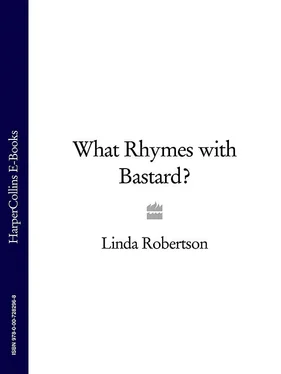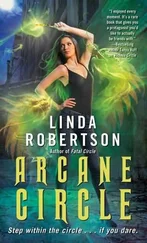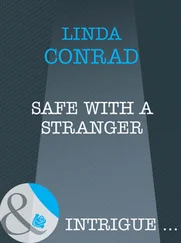Back in Woking, the doctors had no idea when – or even if – he’d recover. I visited him every day, hoping things would get better, but they didn’t. Private clinics don’t accept dangerous patients, so he was the only male resident. A three-strong harem formed round him, solemnly following him through the grounds, giving him shoulder massages. By flirting with one, he provoked me into having sex with him. His bed collapsed. He had to get a new one, and it was obvious why.
Willowdell Hall was not locked, and Jack went missing on a daily basis. He was often found standing on the road out front, directing traffic with volumes of nineteenth-century poetry.
After three weeks of this sort of thing, I had to return to Cambridge to face my final exams – three years of indolence distilled into six weeks of hell. When Jack and I argued on the phone one night, he tried to escape to Cambridge by hitch-hiking up the M1, and was quickly picked up by the police. I decided I needed to visit him again, but the day I arrived, he suffered a bad reaction to his medication, and things got really nasty. He started saying creepy things, and dribbling, and then his face froze, whereupon the nurses dragged him upstairs, pulled down his jeans and gave him a massive injection in the backside. At once he fell asleep, and I went home.
All too soon, my exams began. While I tackled Paper 7: Near-identical Portraits of Fat Old Men in Wigs, 1740–1860, my mum took my boyfriend out for afternoon tea, accidentally driving the wrong way up a motorway slip-road. ‘Christ, Lins, your mum’s insane!’ he yelled, into the phone.
‘Oh, darling,’ reported Mum, gaily, ‘Jack’s a riot! We were in this café run by Christians and he went up to the owner and said, “You know, I don’t believe in God,” and then had this philosophical conversation with him and, of course, the owner couldn’t keep up. Oh, it was marvellous!’ I was glad they were having fun.
While I struggled with Paper 8: Near-identical Classical-style Buildings in Varying States of Disrepair, 1000 bc–the Present, my parents took Jack out to the Woking shopping centre. ‘And, darling – he disappeared! We thought he’d escaped. He was gone for at least half an hour, and we were panicking. We were thinking we’d have to call the police – oh, it was terrible, I had such a fright, because we were legally responsible for him! And then he came out of the gents’, smiling as if nothing had happened.’
‘Mum, I should have warned you – Jack takes for ever in the loo.’ 2
Things took a turn for the worse. A bed had come up in an NHS place in Cambridge, and he was being transferred. He was happy that he’d be closer to me, and so was I, until I visited him. It was like one of those re-enactments of nineteenth-century Bedlam you see on BBC2, and the place stank of ladies’ pants. Not surprisingly, he got better pretty fast. That summer, his mum got him a job moving furniture, and watched over him while he got his head back in order. Altogether, it had been a humiliating episode. Jack had no more secrets. Those who cared for him had been hurt, and everyone else was laughing. He loved drugs, but it was official: he couldn’t handle them, and it was my responsibility to make sure he never took them again.
These were the inauspicious beginnings of our story. Not the ideal basis for a solid relationship, you might think, but the fact is, I’d never had a boyfriend before. My mother was beginning to despair, so even a boyfriend in a lunatic asylum seemed better than none. I felt the same way.
I was a teenage solipsist
My early childhood was spent almost exclusively with my mum, a devoted and endlessly interested companion. Her friends’ kids were older than I was, and Dad was busy with his crossword, so it was just the two of us. Perhaps as a result of this, I pursued close one-on-one friendships with a single-minded passion from the moment I was pushed into the social whirl of nursery school. When I made a friend, I didn’t want to share her, and I was never the first to let go. I spent most of my childhood lying in bed, reading – a delicious habit that has the preservative effects of heroin but doesn’t build one’s social skills.
Significant Best Friend No. 1 was Melanie. Aged eleven, we dressed up as pigs and became fast friends. We’d go to jumble sales, then totter home in the worst possible outfits, giggling helplessly. As I was copying her, I’d got Mum to buy me a coat just like hers, from C&A, and we used to hold hands within the matching sleeves. But one year later we were marched off to different schools: I was sent to the local comprehensive, five years of breeze-block hell. Melanie started seeing boys and forgot about me. Aged sixteen, I got a job on the till in the Safeway opposite her house and sat on the fire escape, staring at her and her spotty beau as they walked to the bus stop. I went to her birthday party in my brown Safeway uniform, accessorized with tan tights. As I sat in silence, a blond boy approached. ‘Excuse me,’ he said, ‘but do you have any friends?’
I worked at Safeway for £1.79 an hour three nights a week. At all other times, I watched TV. On Saturdays, I played the violin in a youth orchestra until one p.m., then went home and went to bed for the rest of the weekend. For recreation, I ate microwaved muffins and jam, and watched TV. Sometimes I just lay there, looking at my bedroom wall, willing time to pass, waiting to become an adult. Nobody intervened: they don’t really fuss about teenagers who do well at school.
I found someone who hated everyone else as much as I did, and we both dressed up as Christmas trees for non-uniform day in June – an anti-fashion protest that aroused great hostility. That was fun, but it was with unmitigated joy that I left the breeze-block gulag behind. Mum bought me a bus pass and I trekked to Winchester for my A levels. I had a bottle of whisky in my bag, and I’d started reading again, but I was still listening to Bartók and acting aloof. One day, a girl at school made a comment about the rain, and I told her I didn’t have a faculty for discussing weather.
Luckily, Significant Best Friend No. 2 saved me from social death. Alice was the world’s cutest Catholic. She had the button nose, the boobs and the confidence to attract a steady line-up of boys. Her friendship helped me eke out a paltry social life, which pleased my mum. While others my age had curfews and the like, she would happily come and pick me up at all hours from a club, a house, a bar or – more likely – the forty-seven bus stop, where Alice and I spent much of our time.
One person is one thing, but several people are quite another. If the evening involved more than the two of us, I’d spend it on a knife edge, striving so hard to impress people that I’d forget to be nice. To be honest, it never occurred to me to be nice in the first place. I’d never liked groups of people. In junior school I’d giggle away in lessons, then squirm with anxiety as break-time approached. I’d march up and down the playground on my own, practising my whistling. In secondary school, I clung to the periphery of groups, and when it got too much, headed for the library cupboard or the toilet.
I was usually second to last to be picked for teams, one up from the fat kid, and always found myself at the end of the row. I would clam up, then hate myself for it. Not that anyone would have noticed: they were all too busy worrying about themselves. That’s the trouble with solipsism – you think you’re the only one.
By the time I could finally drink and drive legally, I sensed Life just beyond my grasp. I was certain it would begin for real once I got to university. I’d find a little gang of people who were just like me. (Of course, had I actually met anybody just like me, I wouldn’t have liked them.) I couldn’t wait, so I didn’t, despite the social pressure to take a year off and ‘see the world’. I had other reasons to avoid the world, too, and as this stay-at-home stance helped shape my future, I’ll explain a few.
Читать дальше












